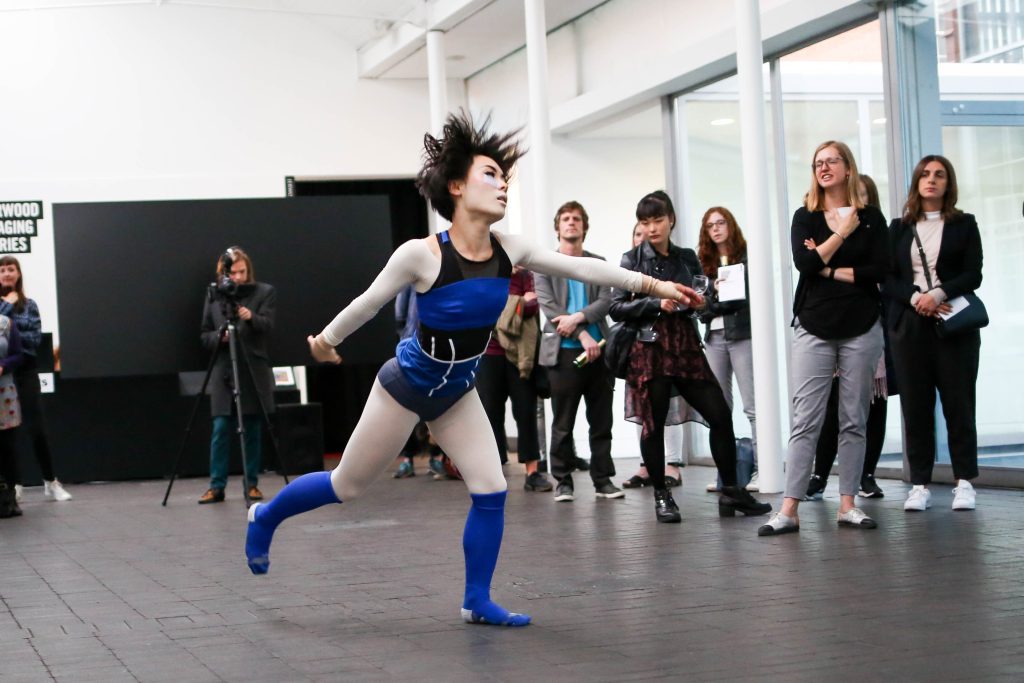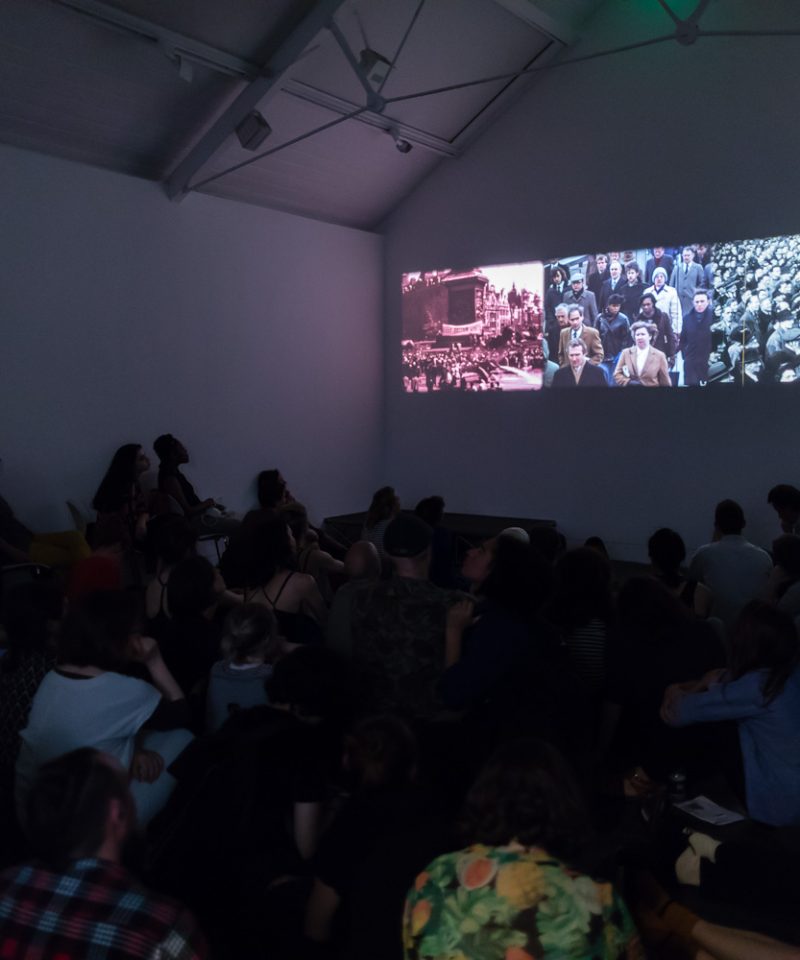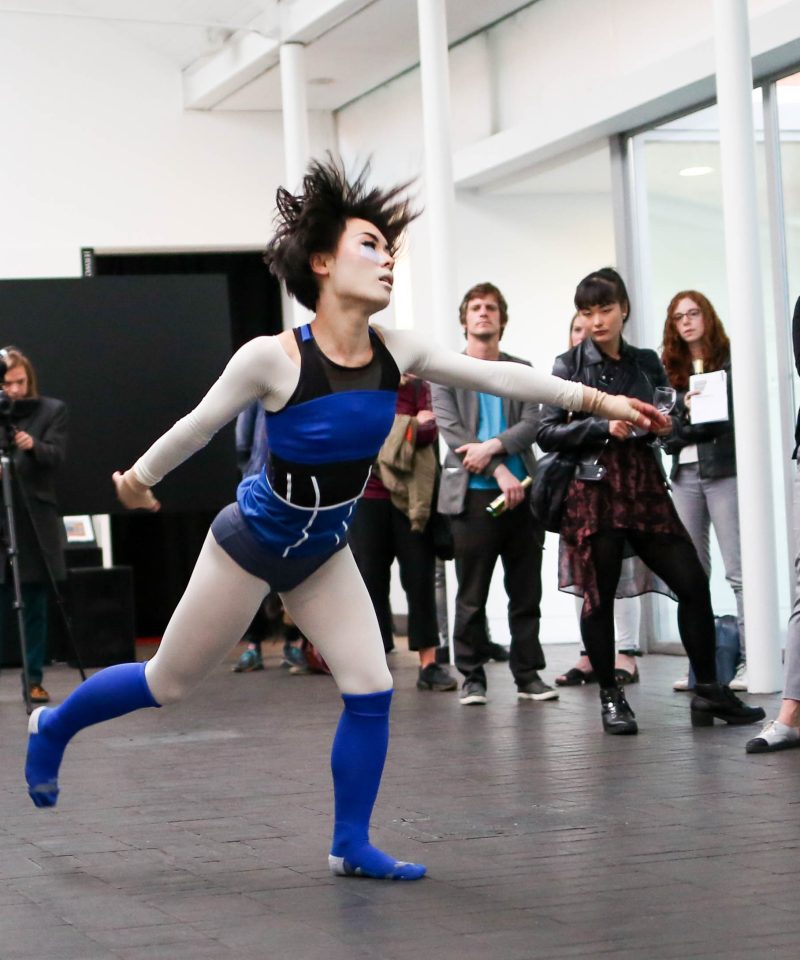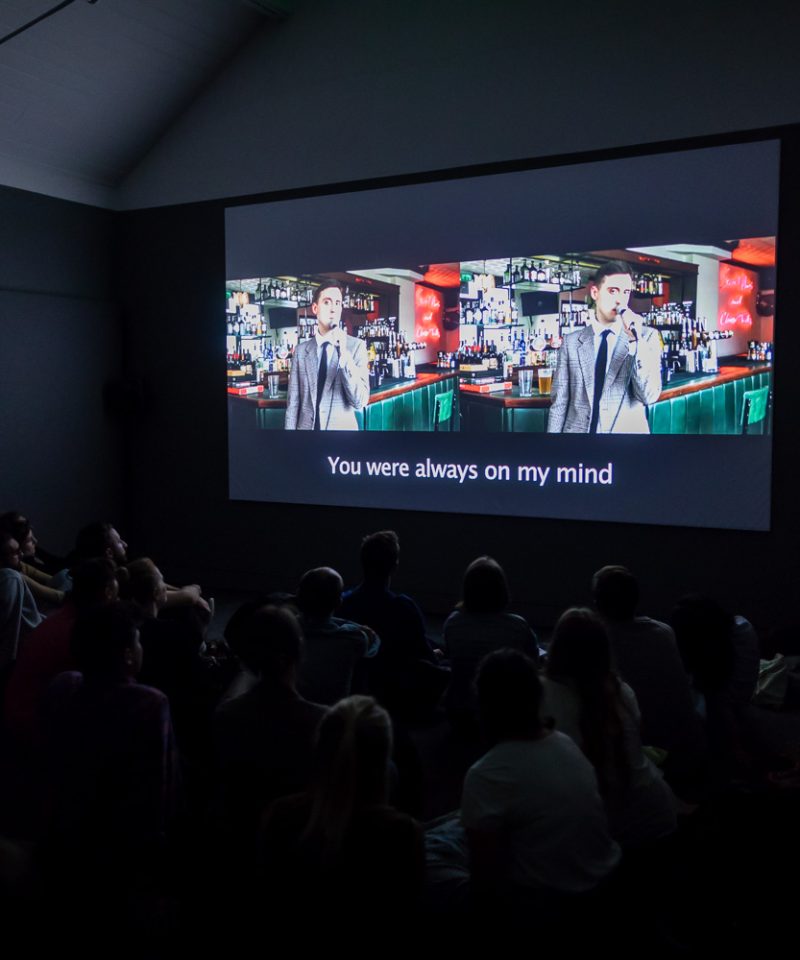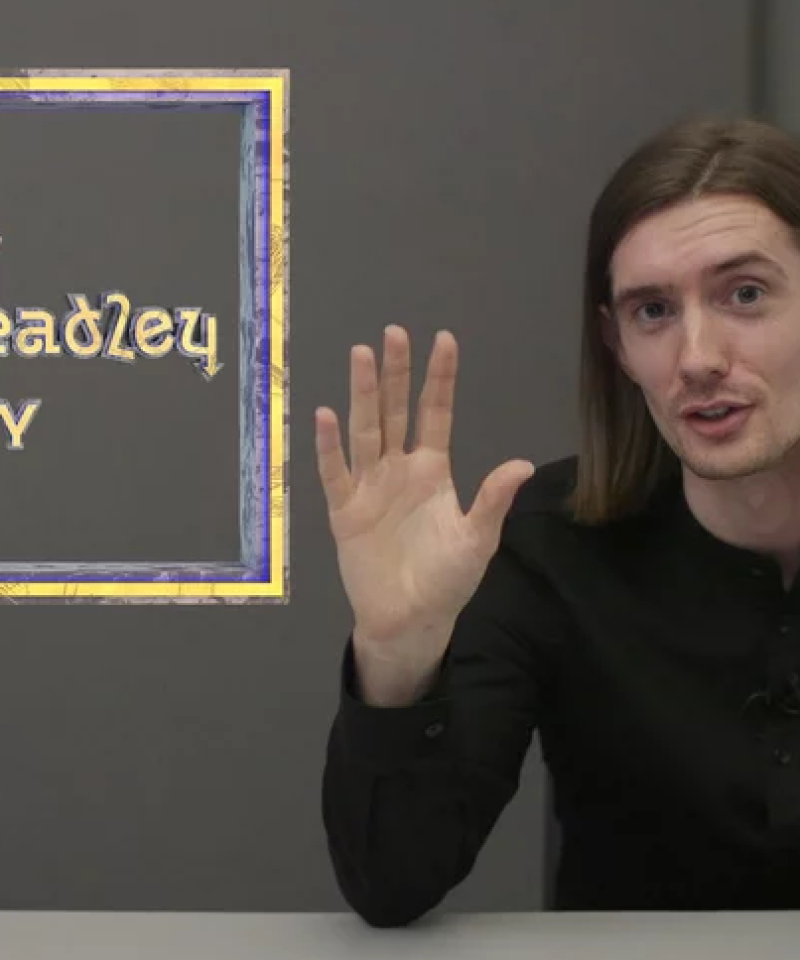The disappearance of the object is fundamental to performance; it rehearses and repeats the disappearance of the subject who longs always to be remembered. – Peggy Phelan, Unmarked: The Politics of Performance
Performative writing is metonymic. It is a self-consciously partial or incomplete rendering that takes its pulse from the difference rather than the identity between the linguistic symbol and the thing it is meant to represent. – Della Pollock, Performing Writing
I often wonder what gets left behind in the days immediately after a performance: how it is different for each and every witness, and every witness-to-writer. I dwell in scattered thoughts and scattered words. The remnants of feeling. Frayed, like the seams of a second-hand dress that has been passed along, touched and groped, by a succession of time-unhinged bodies.
I was definitely there, but surrounding myself with the badly taken photographs and hastily shot videos, that presence now feels fragmented, even damaged, as if I am inhabiting that which is now empty. Just documents. Documents with holes in, or rips down the middle.
I first thought about writing a fairytale out of Siren. Something about a young girl (‘alluring or fascinating but also dangerous in some way’), who gazes through windows and mirrors, a looking-glass-Alice, and falls into a red pit of dancing desire. I was aching for narrative, longing to make a story out of the movements to which I was witness. It was a desire that I soon realised was faulty, a failure to recognise the break, the fracture in temporality so intrinsic to performance’s impact. It is where action collapses into memory: where speech folds into transcription. Why did I need to make a story out of what I saw, when what I saw was so dazzlingly indeterminate?
Making material out of scraps would be more faithful to the performance’s parts: the dancer’s slow, accumulative conversion from hardly moving an inch, to making high kicks and erratic stretches, in dizzying twists and turns; the parts of the space (three rooms, but so many more when we count the number of bodies); the bits and pieces of orchestrated sounds, from a desperate hum to a deeper pulse; the blue and black patchwork outfit (spacegirl sporty); the repetition of boxes and grids, mirrors, screens and windows, alluding to an expansion of vision, and a multiplying of parts and bodies; the affective switch from blue light to red (as well as the pitch-black in the back room); the parts of the spoken poem, which broke the dancer’s movement (an interlude of sorts); as well as the language parts (most often single words) that raced through the pages of my notebook. Siren made a bodily assault on my capacity to write, with words arriving in movements as fragmented as its own.
(I turn again to Peggy Phelan: The challenge raised by the ontological claims of performance for writing is to re-mark again the performative possibilities of writing itself.)
I returned to those words two days later. Might they reveal something new? Something hidden? I became my own archivist, tracing the stop-start ejections of my messy handwriting, the secrets of my ink, and the possibilities of my notebook words. If these rapid marks are all I have left, materially speaking (another kind of document), what might they say about the emotional and physical traces of Siren, those curious feelings that are hard to make sense of, to string into a show of explanation and continuity?
(Jane Blocker: To write a history of performance art is therefore to engage in the pleasures of the text.)
Here I offer an affective dictionary, a dictionary that expands, contradicts, surprises, and complicates the individual word trace. If this is what gets left after a performance, a network of unlinked words, it does not stop there, but rather increases and accumulates, making writing. This dictionary occupies the absence of Siren, displaces it with its own presence, a fragmented cluster of my own siren words (and Louisa’s), the alphabet displacing it from its narrative order. As Adam Phillips writes of his dress dictionary: if you let the interactions of the senses of a word be included, one of the things that can happen is that anything can happen.
Consider this vocabulary an invitation, an outstretched arm.
1. ASSAULT
verb
- a violent, visceral attack on a body, or bodies, bringing them closer
- from the Latin ‘to leap’; to throw yourself in: a projection
- an exercise in risk
- create a storm; a thunderous strike
- invade space and senses; make a raid, or a riot: affective, corporeal, institutional, or political
- You don’t even know / what’s coming
2. ARRIVAL
noun
- the action of arriving, and the state of achieving that knowledge
- an often indescribable feeling of finding and entering something new
- touching untouched places, spaces, bodies and selves
- from the Old French ariver, meaning ‘to come to land’; arrival is a catatonic landing, invariably safe and dangerous
- Put this on and come in
3. BECOMING
verb, gerund
- the relentless process of change and transformation, in body, identity, subjectivity, etc.
- a morphing into adolescence, a getting older: a transgressing
- an opening up, to a limitlessness, unknown
- Some chemical gently melting me
- an alchemical procedure
4. BLUE
adjective
- the colour of the sky on a sunny day, torn between green and violet
- an incapacitating melancholy; a feeling of blueness
- the pornographic label; sexuality that sends out a pre-warning
- a warning of death, or a postscript of death, akin to a memorial
- blanketing blindness; a spur to memory
- with that spur, a grasping at opportunity and vision: the urge to see
- a sign of ink; a sign of writing
5. DARKNESS
noun
- the overpowering state of little or no light
- to be swept up by mystery, obscurity and ambiguity, surrounded and trapped
- to be trapped in melancholy, seemingly never-ending
- a space of temptation, to corrupt or become corrupted
- a falling into astronomy, the sky; a way to float through time, where people don’t know you
- In the dark your face forms
6. DESIRE
verb
- from the Latin disiderare, meaning ‘long for, wish for; demand, expect’; perhaps originating from ‘await what the stars will bring’, from the phrase de sidere (‘from the stars’): to desire is to be both passive and active
- to reach with the body
- to crave with the mouth, the stomach, the heart
- to long for something without knowing the outline of that something; desiring is an itch
- I don’t know, I only want blindly
- to desire is often utopian; it is a feeling for the future
7. DRESS-UP
verb
- from the Old French dresser, meaning ‘arrange’: to dress-up is to treat the body as if were plastic, or a painting
- to create an interface between the body and the world: an armour, a disguise, a uniform
- to control the body’s outer objects
- to add to the skin, complicating the basics
- to act with clothes or adornment: an exploration, testing boundaries
- Watch my eyes draw yours / on largely
8. INHABITANT
noun
- a figure that occupies, takes up space, claims it for her own
- My shape fills your dark / matter void
- From the Latin ‘to have’: the inhabitant enjoys what she takes
9. LOOKING
verb, gerund
- a focused, absorbent gaze
- a determined fixing
- a scoping out; a desiring investigation; a finding
- Eyes widen across what / lies ahead
10. POSSESSION
noun
- the state of owning something or someone: from the Latin possidere, meaning ‘occupy, hold’
- a feeling that is drawn upon the hands, of what lies inside of them, however invisible
- a state that moves between care and violence; the tactile and the immaterial
- the climax to obsession, desire or hunger
- Eaten them all into myself
11. PULSE
verb
- to throb rhythmically, a pounding, bodily vibration
- a beat morbidly regular, and irregularly morbid
- a driving urge
- Go listen. Your insides are noisy
12. RED
adjective
- the colour of blood, fire, or fairytale roses
- the colour of socialist leanings
- also rage; violence
- love
- and desire
- even pain
13. REFLECTION
noun
- the process of an image returning, by a bouncing back of light, image or sound
- a haunting of face, or faces: an echo: a repetition of inside and outside
- a pause; a state of wondering (and wandering), expansively
- a sign of something other, be it healthy or damaging
- Making me by your seeing
14. SHADOW
noun and verb
- an intangible shape or silhouette caused by an intervention in light
- a trace that could escape, uncontainable
- to place in darkness
- to make uncertain, hazy
- to stalk, creep, lurk behind: ready to pounce
- a sign of sadness or threat
- a deepening of space
- You can’t touch me
15. WAITING
verb, gerund
- to remain static and still, a forced delay
- an accompaniment to boredom, and tension; also expectation
- often gendered; it can be passive or a willed event
- a killing of time
- a tactical linger
- time that teases, gets you hungry
- Are you there? / Are you coming? / Are you really?
If writing for performance always stages an act of displacement, then so does the dictionary. It is as metonymic as colour: red or blue. Split down the middle. It is the stretched-out wings of the screaming siren. Flying away, feeling blue skies.
